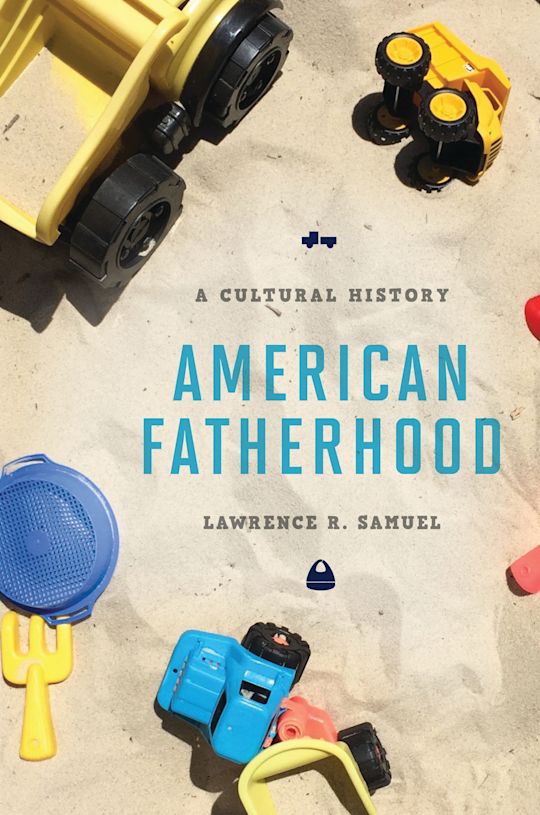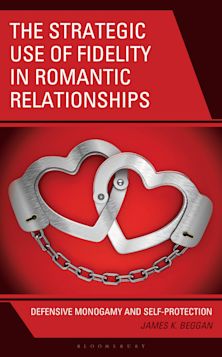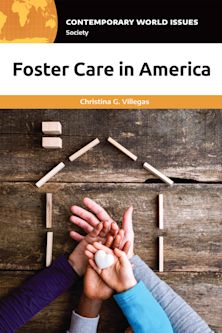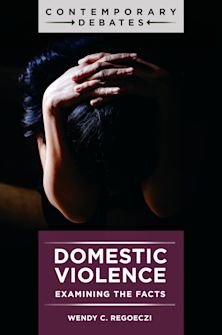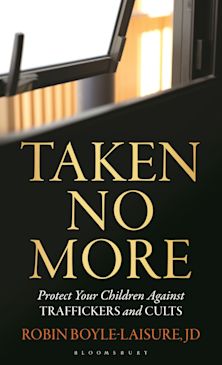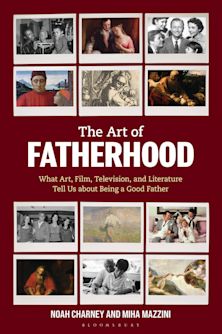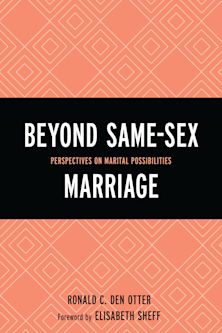- Home
- ACADEMIC
- Sociology
- Sociology of the Family
- American Fatherhood
You must sign in to add this item to your wishlist. Please sign in or create an account
Description
American Fatherhood: A Cultural History traces changes in what it means to be a dad in America, from the 1960s through today. The book begins with an overview of fatherhood in America from the “founding fathers” through the 1950s and progresses to the role of fathers as they were encouraged to move beyond being simply providers to becoming more engaged parents, navigating complex and changing gender and family expectations.
By tracing the story of fatherhood in the United States over the course of the last half-century, American Fatherhood reveals key insights that add to our understanding of American culture. The book argues that, for most of the twentieth century, male parents were urged to embrace the values and techniques of motherhood. In recent years, however, fathers have rejected this model in place of one that affirms and even celebrates their maleness and their relationships with their children. After decades of attempting to adopt the parenting styles of women, in other words, men have finally forged a form of child-raising that is truer to themselves. In short, fatherhood has become a means of asserting, rather than denying or suppressing, masculinity—an original and counterintuitive argument that makes us rethink the idea and practice of being a dad today.
Table of Contents
1. America’s Newest Endangered Species
2. The New Fatherhood
3. The Daddytrack
4. The Role of a Lifetime
5. Manny Knows Best
Conclusion
Notes
Selected Bibliography
Index
Product details
| Published | Nov 05 2015 |
|---|---|
| Format | Ebook (PDF) |
| Edition | 1st |
| Extent | 1 |
| ISBN | 9798216219569 |
| Imprint | Rowman & Littlefield Publishers |
| Publisher | Bloomsbury Publishing |
About the contributors
Reviews
-
Samuel (Death, American Style), a onetime 'confirmed bachelor' who became a father at age 55, examines the evolution of American fatherhood from the mid-1960s to current day in this well-researched book. Readers looking for poignant moments in parenting won't find it here. This is a (mostly) objective study of how fatherhood has changed as the roles of men—and women—have evolved. For example, in the 1970s, 'bachelor fathers,' single by divorce, were an oddity, and a father gaining custody of a child was notable. Using a wide array of resources, including popular magazines, books, and television shows, Samuel shows how fathers have moved past the 'invisible parent' stage of the 1980s into the 'fatherhood movement' of the 1990s, becoming more comfortable in their role as fathers without simply trying to emulate mothers. Samuel's assessment is often candid; he quotes several men who admit, in the words of one, that fatherhood 'might have been a mistake.' . . . [O]n the whole, this is a strong, educational, and informed resource.
Publishers Weekly
-
Samuel argues that since the 1960s, and especially over the past two decades, fatherhood in the US has undergone a dramatic, positive change. Fathers today demand and partake in a full share in raising the next generation. However, popular culture still depicts them in the media—especially in TV sitcoms and movies—as distant, incompetent, and unequal to their female partners. Reviewing the history of fatherhood, Samuel proceeds to juxtapose recent sociological research with the prevalent stereotypical fatherhood gleaned from the past. Currently, fathers assist in delivery, share household work, care for newborns, and are active in their children’s education. As women became the main breadwinners, fathers assumed mothers’ roles. Some even made the choice to become the main caregivers for their offspring, quitting their jobs and putting their careers on hold. Fathers contribute differently to their children’s development, and scholarship shows that their masculine approach benefits their children. However, 25 percent of families in the US are fatherless; notably, the African American underclass is disproportionally represented. Organizations were formed to reach and educate detached fathers, and Samuel suggests that the new fatherhood is inverted feminism. Summing Up: Recommended. All public and academic levels/libraries.
Choice Reviews
-
Lawrence R. Samuel's book presents an interesting overview of the various cultural dimensions of fatherhood since the 1960s. In broad strokes, he details the changing nature of fatherhood as it relates to other cultural phenomena in the United States.
Catherine Richards Solomon, Quinnipiac University
-
A smart and provocative investigation of a hugely important topic. Lawrence R. Samuel has made a valuable contribution to our understanding of modern fatherhood.
Sam Apple, author of American Parent
-
Lawrence Samuel’s American Fatherhood is a useful addition to the growing literature on the importance of fathers. I’m sure many readers will find it helpful and informative.
Paul Raeburn, author of Do Fathers Matter? and Acquainted with the Night









